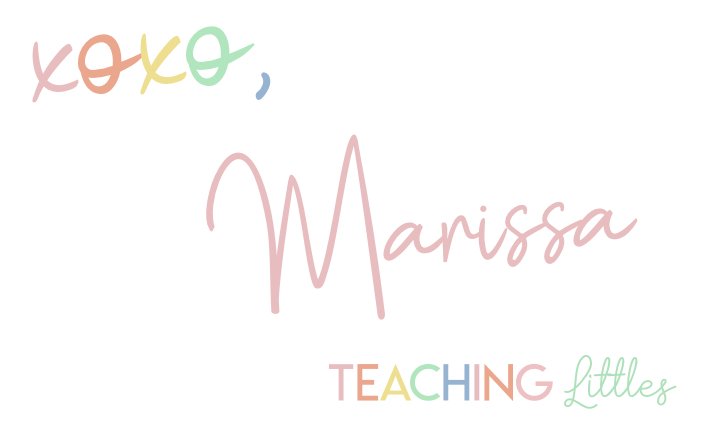In this blog post, we’ll explore a variety of activities tailored for 11-month-olds, designed to support their physical, cognitive, and emotional development.
Welcoming a little one who is 11 months old is a journey filled with joy and new challenges. As your baby nears their first birthday, they are likely becoming more active and curious about the world around them.
It’s a crucial time for their development, and engaging them in various activities can significantly enhance their growth.
Sensory Play Activities for Your 11 Month Old
Sensory play is vital at this stage as it helps in developing your baby’s sense of touch, smell, sight, and hearing.
Here are a few ideas:
Texture Exploration Board

Create a board with different textures like soft felt, rough sandpaper, and bumpy corrugated cardboard. Allow your baby to touch and feel each texture.
This activity helps your child learn about different tactile sensations, enhancing their sense of touch and understanding of texture differences.
Related Post: Sensory Board Ideas for Babies and Toddlers
Homemade Shakers

Fill small, secure containers with various items such as rice, beans, or beads to make shakers. Let your child shake them and explore the different sounds they make.
This introduces auditory discrimination as they learn to distinguish between sounds and develop their auditory sense.
Related Post: DIY Sensory Shaker Ideas
Edible Finger Painting

Use yogurt, baby food, or pudding dyed with natural food colors to create edible paints. Spread paper or a tray and let your baby paint with their fingers.
This messy play not only stimulates their sense of taste and touch but also encourages creativity and fine motor skill development.
Scented Water Play

Add different scents like vanilla, lavender, or mint to bowls of water. Encourage your child to splash and play in the scented water, using their hands or toys.
This activity helps in recognizing and differentiating between various smells, contributing to the development of their olfactory senses.
Light and Shadow Exploration

Use a flashlight in a dimly lit room to create shadows on the wall. Move the light around to change the shadow shapes and let your baby try to catch or touch them.
This playful experience fosters visual tracking skills and introduces the concept of light, shadow, and cause and effect.
Fine Motor Activities for Your 11 Month Old
Enhancing fine motor skills prepares your baby for tasks like holding a spoon or drawing.
Simple activities include:
Stacking Rings
Provide your baby with a set of stacking rings. They will learn to grasp and place the rings on a pole, improving hand-eye coordination and dexterity.
This activity helps in understanding size and sequence as they learn to stack from largest to smallest.
Simple Sorting

Offer large, colorful pom-poms, or colored toys and a muffin tin or several small bowls. Encourage your child to sort the pom-poms or toys by color into the different sections.
This activity promotes fine motor skills through picking up and releasing objects, and also introduces basic sorting and color recognition.
Playing with Stickers

Give your baby large, easy-to-peel stickers and a piece of paper to stick them on. Peeling and placing stickers enhances finger strength and precision.
It also encourages creativity and provides a sense of accomplishment when they successfully attach the stickers to the paper.
Pulling Tissue Paper
Fill an old tissue box with scraps of fabric or large pieces of tissue paper. Let your child pull them out one by one.
This activity is great for developing grasp and pull motions, and strengthening their fingers and hand muscles.
Baby-Friendly Bead Threading

Use large, baby-safe beads and a thick string or shoelace. Show your child how to thread the beads onto the string.
This task helps in fine-tuning their pincer grasp (using the thumb and forefinger) and improves concentration as they focus on threading the beads.
Gross Motor Activities for Your 11-Month-Old
These activities are important for developing larger muscle groups. These are important skills for your 11-month-old to develop.
Here are a few great ideas:
Crawling Obstacle Course

Create a safe obstacle course using pillows, boxes, and soft furniture. Encourage your baby to crawl over, under, and around these objects.
This activity helps in strengthening their muscles, improves coordination, and teaches them to navigate different terrains.
Ball Rolling and Chasing

Roll a soft ball back and forth or let your baby chase a ball around the room.
This simple game encourages crawling or walking, enhances hand-eye coordination, and promotes understanding of cause and effect as they see the ball move when pushed.
Standing and Balancing Games
Help your baby stand by holding onto furniture or your hands. Place toys on higher surfaces, encouraging them to stand and reach for the toys.
This activity strengthens leg muscles, improves balance, and builds confidence in standing and cruising.
Simple Climbing

Create a safe climbing environment with cushions or a low, soft toddler climb set. Supervise your baby as they climb up and slide down.
Climbing activities develop muscle strength, coordination, and spatial awareness.
Dance and Movement to Music
Play some child-friendly music and hold your baby’s hands as you gently dance together. Encourage them to move their body to the rhythm.
Dancing is a joyful way to develop gross motor skills, rhythm, and balance, and it also stimulates their auditory senses.
Related Post: Fun Music & Movement Songs
Language Activities for Your 11 Month Old
Fostering language skills at this age sets a foundation for future communication.
Some activities include:
Interactive Reading

Choose simple picture books with large, colorful images and read them to your baby. Point to and name the objects or characters in the book.
This activity encourages language comprehension and introduces new vocabulary. The interaction also helps in understanding the association between words and pictures.
Singing Nursery Rhymes and Songs
Sing nursery rhymes and simple songs with actions, like “The Itsy Bitsy Spider” or “Wheels on the Bus.” Encourage your baby to mimic the actions and sounds.
Singing improves listening skills and rhythm, and the repetitive nature of songs aids in memory and word recognition.
Naming and Pointing Games

During playtime, name and point to different objects around the room or during a walk. Say things like, “Look, there’s a ball!” or “Do you see the dog?”
This helps in associating words with objects and enhances their understanding and vocabulary.
Simple Conversation and Mimicking
Engage in back-and-forth “conversations” with your baby. Listen to their babbling, then respond as if you’re having a conversation. Encourage them to mimic your sounds and words.
This interaction is crucial for developing social language skills and teaches the basics of communication and turn-taking.
Puppet Play

Use hand puppets to tell simple stories or sing songs. The animated movements and different voices captivate your baby’s attention and stimulate auditory and visual senses.
Puppet play encourages listening and provides a fun way to introduce new words and concepts.
Exploration and Discovery Activities for Your 11 Month Old
Encourage curiosity and exploration with these activities:
Nature Walks

Take your baby on a walk outdoors, whether in a stroller or a carrier. Stop frequently to let them touch natural objects like leaves, grass, or flowers (under your supervision).
This activity introduces them to different textures, smells, and sights of nature, stimulating their senses and curiosity about the natural world.
Household Object Exploration

Create a safe space with common household objects that are safe for babies, like wooden spoons, plastic bowls, and soft fabric items.
Let your baby explore these objects, showing them how they can be used (like banging a spoon on a bowl).
This encourages curiosity and understanding of everyday objects and their uses.
Hide-and-Seek with Toys
Hide a favorite toy under a blanket or behind a cushion and encourage your baby to find it. Start with partially hidden objects and gradually increase the difficulty.
This simple game helps develop problem-solving skills and the understanding of object permanence (the concept that objects continue to exist even when they can’t be seen).
Water Play

Fill a shallow basin or a large bowl with a small amount of water and provide various safe items to put in and take out of the water, like plastic cups, spoons, or floating toys.
Supervise your baby as they explore the water’s properties, learning about cause and effect, and the sensation of wet and dry.
Texture Bag

Create a ‘texture bag’ filled with objects of various textures, such as a soft scarf, a bumpy ball, a smooth plastic toy, etc. Let your baby reach in and feel each object, then pull it out to see if their guess was correct.
This activity enhances tactile exploration and helps in developing sensory discrimination.
Social and Emotional Activities for Your 11-Month-Old
Engaging with others and understanding emotions are critical at this stage.
Here are some ideas:
Peek-a-Boo Games

Play peek-a-boo with your baby using your hands or a cloth. This simple game teaches them about object permanence and the idea that people continue to exist even when not in sight.
It also helps in building trust and attachment as they see you reappear after disappearing.
Expressive Faces

Make different facial expressions (happy, sad, surprised) and see if your baby mimics you.
This activity helps them in recognizing and understanding different emotions. It also encourages them to express their own feelings through facial expressions.
Interactive Play with Dolls or Stuffed Animals

Use dolls or stuffed animals to simulate caring behaviors like feeding, rocking, or tucking into bed.
This kind of pretend play develops empathy and the understanding of caring for others. It also encourages imaginative play and emotional expression.
Social Interaction at Playgroups

Participate in baby playgroups or arrange playdates. Interacting with other babies and adults in a safe environment helps your child in understanding social dynamics and develops their ability to interact with others.
It also provides opportunities for learning social cues and cooperative play.
Responding to Emotional Cues
Pay close attention to your baby’s different cries and sounds and respond appropriately. Comfort them when they are upset and share in their joy when they are happy.
This responsive caregiving reinforces the idea that they are heard and understood, which is crucial for emotional security and development.
Engaging your 11-month-old in these activities can be a delightful way to bond and support their development.
Remember, every child is unique, so it’s important to observe and adapt to your baby’s interests and responses.
Enjoy this special time, as your little one discovers the world in their own unique way.


